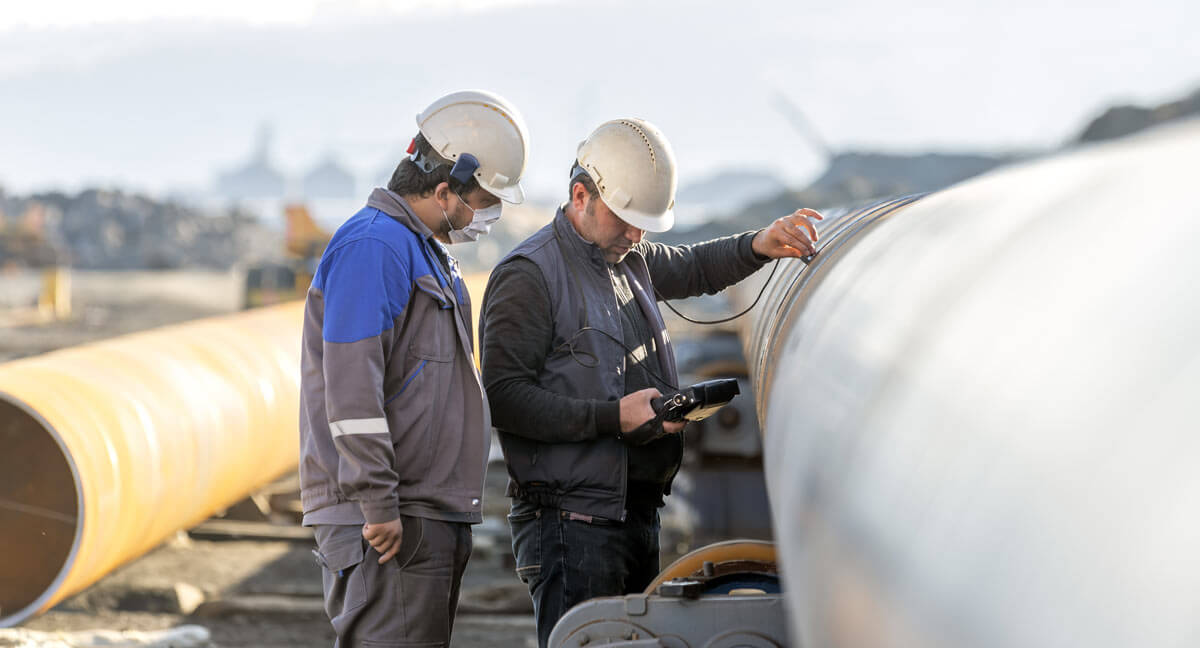Navigating Welding Inspection Gilbert Arizona: Important Insights for Industry Professionals
Navigating Welding Inspection Gilbert Arizona: Important Insights for Industry Professionals
Blog Article
The Impact of Rigorous Welding Examination on Market Criteria: Encouraging Safety, Dependability, and Conformity Across Numerous Industries
The duty of rigorous welding examination is increasingly identified as an important part in improving market criteria, where safety, dependability, and compliance take priority throughout varied markets. By ensuring conformity to developed guidelines, such as those stated by AWS and ISO, these inspections not only reduce threats yet also cultivate a sense of responsibility amongst specialists. As sectors advance and encounter brand-new obstacles, the effects of these techniques might prolong beyond simple compliance. What improvements might we anticipate in welding methodologies as the demand for quality and safety intensifies?
Importance of Welding Inspections
Identifying the important role of welding examinations in preserving quality and security standards, sector professionals focus on these evaluations to make certain structural integrity. Welding evaluations offer as a vital checkpoint in the construction procedure, identifying defects that could jeopardize the sturdiness and safety of bonded frameworks. By systematically examining welds, assessors can discover concerns such as incomplete infiltration, porosity, and cracks, which might not show up to the naked eye.
The value of these assessments extends past plain compliance; they are essential for securing lives and protecting investments. In important industries such as aerospace, building and construction, and manufacturing, a single faulty weld can cause catastrophic failures, resulting in both financial loss and human casualties. As a result, carrying out strenuous inspection protocols alleviates these threats and enhances general task dependability.
Additionally, consistent welding assessments foster a culture of top quality throughout organizations, encouraging welders to abide by ideal practices and preserve high standards in their job. This dedication to high quality not only boosts functional effectiveness but likewise strengthens the track record of business within their particular markets. Therefore, welding inspections are crucial in promoting security, reliability, and conformity throughout different industries.
Key Industry Requirements and Laws
The framework of welding assessments is underpinned by a robust collection of sector requirements and regulations that regulate practices throughout various fields. Secret establishments, such as the American Welding Society (AWS) and the International Company for Standardization (ISO), establish standards that ensure high quality and safety and security in welding operations. For example, AWS D1.1 lays out crucial requirements for welding steel frameworks, while ISO 3834 specifies top quality requirements for combination welding.
In addition to these particular requirements, market guidelines like the American National Requirement Institute (ANSI) and Occupational Safety And Security and Health Management (OSHA) mandates further enhance compliance by setting security procedures and functional ideal techniques. These policies are important in sectors such as aerospace, manufacturing, and construction, where welding integrity is paramount.
In addition, sector-specific criteria, such as those from the American Culture of Mechanical Designers (ASME) for pressure vessels, provide additional layers of analysis to make certain that welds fulfill rigorous safety and security and efficiency standards. Adherence to these standards not just helps with regulative conformity yet likewise promotes a culture of quality and dependability across the welding industry, inevitably securing public welfare and boosting operational performance.

Advantages of Conformity and Dependability
Continually sticking to sector standards and guidelines in welding inspections returns substantial advantages, enhancing general dependability and performance. The foremost advantage is the assurance of quality in bonded joints, which directly adds to the safety of frameworks and tools. Compliance with recognized criteria decreases the threat of failing and devastating cases, thus protecting both human life and beneficial possessions.
Moreover, organizations that focus on rigorous welding assessments cultivate a culture of liability and professionalism and trust. This commitment not just strengthens the online reputation of the business yet also imparts confidence in customers and stakeholders concerning the stability of items and solutions. Reputable welding processes result in reduced prices associated with rework, fixings, and potential legal obligations originating from subpar craftsmanship.
In addition, keeping compliance with industry requirements promotes smoother regulative communications, as organizations can conveniently demonstrate adherence to needed methods (Welding Inspection Gilbert Arizona). This aggressive method can lead to advantageous partnerships and chances within the market, in addition to access to brand-new markets
Difficulties in Welding Assessment
Navigating the complexities of welding evaluation offers a myriad of obstacles that can hinder conformity with market criteria. One substantial obstacle is the irregularity in evaluation techniques and technologies. Different industries may utilize diverse approaches, leading to incongruities in the assessment of weld top quality. Furthermore, the lack of standard training for examiners can cause varied interpretations of assessment standards, which may compromise security and integrity.
One more challenge hinges on the accessibility of sophisticated inspection tools - Welding Inspection Gilbert Arizona. While modern technologies such as ultrasonic testing and radiography can enhance detection abilities, their execution might be limited by price or availability, specifically in smaller procedures. This variation can cause a dependence on much less efficient inspection methods, raising the risk of unnoticed defects
Furthermore, the hectic published here nature of modern manufacturing often pressures inspectors to focus on speed over thoroughness, possibly overlooking essential problems. Last but not least, governing compliance can be intimidating because of the advancing nature of market standards, leaving organizations having a hard time to stay on top of the current demands. These obstacles necessitate continual improvement in assessment methods to guarantee the honesty of welded structures throughout different industries.
Future Trends in Welding Practices
Arising innovations and evolving approaches are established to change welding practices in the coming years. Developments in automation, such as robot welding systems, are acquiring grip, boosting precision and performance while decreasing human mistake. These systems will not just quicken manufacturing yet additionally promote constant quality control, dealing with several of the challenges dealt with in hands-on welding.
In addition, the assimilation of expert system (AI) and artificial intelligence right into welding processes is poised to change inspection and surveillance. Real-time information analytics her comment is here will allow anticipating maintenance, enabling aggressive interventions that minimize downtime and boost safety and security. Boosted fact (AR) and online truth (VR) modern technologies are coming to be critical in training welders, supplying immersive experiences that enhance skill advancement without the risks linked with standard methods.
Sustainability is additionally a crucial trend, as markets seek greener methods. The fostering of eco-friendly materials and techniques, together with energy-efficient machinery, will likely come to be basic. As industries adjust to these changes, the focus will change towards higher conformity with security and environmental regulations, ensuring that welding practices not only meet current criteria but also lead the way for a much safer and more sustainable future.

Verdict
In their website verdict, extensive welding assessments significantly improve industry standards by making sure safety, reliability, and conformity across various sectors. As sectors continue to focus on functional stability, the significance of detailed inspections will only raise, eventually benefiting businesses and society at big.
The role of strenuous welding assessment is increasingly acknowledged as a crucial component in boosting industry standards, where dependability, security, and conformity take precedence throughout diverse industries. Thus, welding inspections are important in advertising safety, dependability, and compliance throughout different sectors.
Secret organizations, such as the American Welding Society (AWS) and the International Organization for Standardization (ISO), establish standards that make certain high quality and safety in welding procedures. AWS D1.1 lays out essential needs for welding steel structures, while ISO 3834 specifies quality requirements for blend welding.
In verdict, strenuous welding inspections considerably enhance market requirements by ensuring safety, reliability, and conformity across various sectors.
Report this page